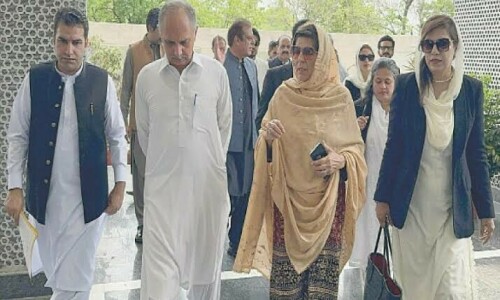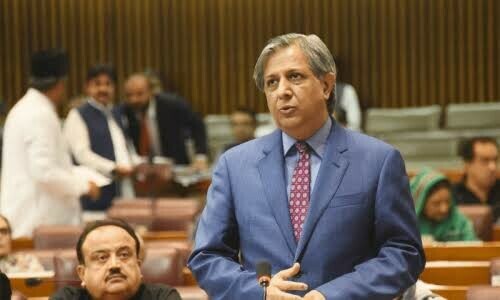ISLAMABAD: Four regional countries have called on Afghan groups to agree on ceasefire, start their peace dialogue at the earliest and take decisive action against terrorist groups operating from their soil.
The call was made in a joint statement issued after a ‘virtual’ meeting of the envoys of Pakistan, Iran, Russia and China on the current situation in Afghanistan and issues confronting the peace and reconciliation process.
The meeting “Call(s) on all Afghan ethnic groups and parties, including Taliban to act upon the opportunities preparing the situation to launch the Intra-Afghan negotiations as soon as possible,” the statement said.
The meeting was held on Monday and the joint statement said that all four participating countries would respectively issue it the same day. However, Pakistan issued it on Tuesday after observers pointed out that Islamabad had so far not issued the statement.
Emphasising their support for ‘intra-Afghan dialogue’, the four countries that have a shared interest in peace in Afghanistan said the dialogue between the Afghan factions was “the only way to realise the Afghan national reconciliation, leading to prompt end of the prolonged conflict”.
After ‘virtual’ meeting, envoys of four countries call for start of peace dialogue at earliest
Taliban had in the peace deal signed with the US in Doha in February agreed on engaging the Afghan government and other groups in talks and exchange of prisoners was set as a pre-condition. The exchange was to be completed before March 10, when the dialogue was scheduled to begin. However, the process progressed slowly because of multiple issues.
The recent uptick of violence in Afghanistan has further complicated the issue. Some of the attacks, including the one on a maternity hospital in Dashti Barchi area of Kabul city on May 12 have been attributed to militant Islamic State group or Daesh. Afghan President Ashraf Ghani, in a major setback to the peace process, however, ordered resumption of offensive operations against Taliban.
Responding to Kabul’s announcement, Taliban last Wednesday said that they were “fully prepared” to counter the offensive by Afghan forces. “From now onwards the responsibility of further escalation of violence and its ramifications shall fall squarely on the shoulders of the Kabul administration,” they said.
Taliban on Monday repeated the call for implementation of Doha agreement. “Afghans sides should focus on real and sincere solution of the issue. Solution of the Afghan issue lies in implementation of the Doha Accord, with avoidance from creating further hurdles. The prisoners’ release process should be completed and the intra-Afghan negotiations should start,” Suhail Shaheen, a spokesman for Taliban’s political office in Doha said.
However, at the same time Taliban launched a massive attack on Kunduz on Monday night. The Afghan defence ministry said that the attack was refused and heavy casualty was inflicted upon Taliban.
The quadrilateral meeting called for immediate ceasefire. “Support the initiative of UN Secretary General António Guterres for universal ceasefire and call for a simultaneous declaration of a comprehensive ceasefire throughout Afghanistan as agreed among parties to the conflict,” the statement said.
The four countries urged Afghan government and other groups to neutralise threat from terrorist groups based in Afghanistan and end to narco-trafficking. The statement importantly included Tehreek-i-Taliban Pakistan, which has been carrying out terrorist acts in Pakistan from Afghan soil.
“Concerned with the serious terrorism threat existing in Afghanistan, urge all sides in Afghanistan to take decisive action against Al-Qaeda, ISIL, ETIM, TTP and other international terrorist organisations operating against regional countries, and to completely eradicate the production and trafficking of narcotics in the country,” the statement said.
Published in Dawn, May 20th, 2020











































